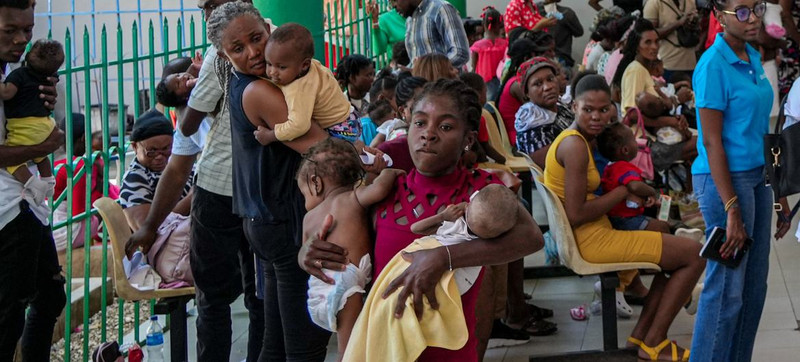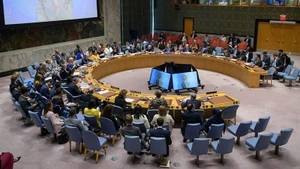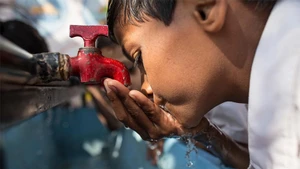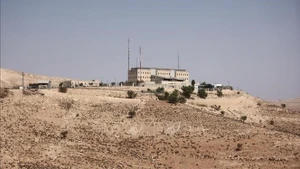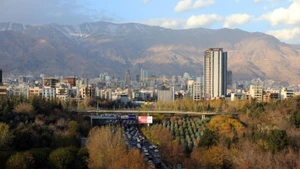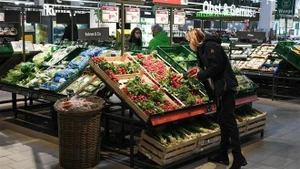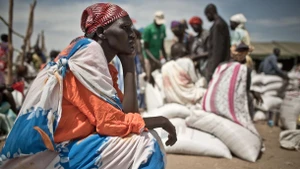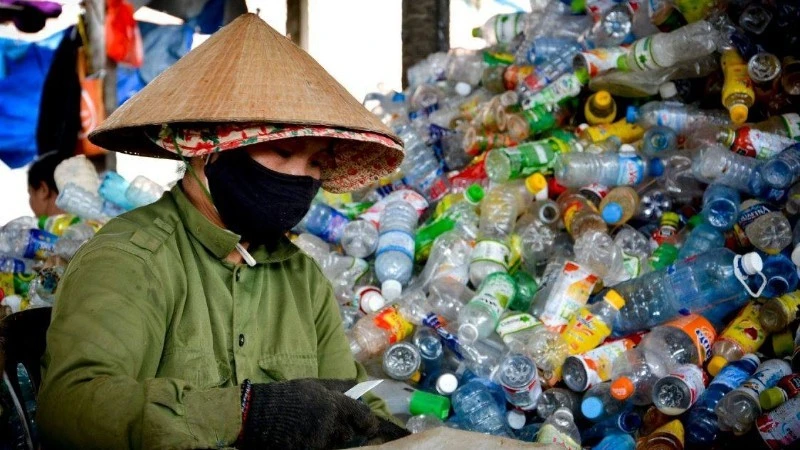Around 6 million people in Haiti are currently in need of emergency humanitarian assistance, while the financial support from the UN Office for the Coordination of Humanitarian Affairs (OCHA) is consistently falling short.
The underfunding requests OCHA to focus on the most needy, including those who have been displaced, those living in gang-controlled areas and cholera-hit communities.
Moreover, poverty rates in Haiti have worsened, with 5.5 million people now experiencing acute food insecurity (up 11% compared to March 2024), of which two million are in food emergencies and 6,000 people are facing famine.
According to OCHA's estimates, 908.2 million USD is needed for relief efforts in Haiti this year, remarkably higher than the 674 million USD required in 2024.
 |
| A burnt-out car serves as a barricade on a street in Port-au-Prince. With over 150 gangs operating in and around the country, all roads access in and out of Haiti's capital are now under some gang control. (Photo: UNOCHA) |
The violent situation in Haiti has worsened, especially in the capital Port-au-Prince. Over the past year, gangs have intensified their control over Port-au-Prince and committed violent acts.
UN data indicates that nearly 7,000 people were killed due to gang violence in 2024, marking a 20% increase from 2023. There were also 1,500 kidnappings and 6,000 cases of gender-based violence.
Notably, there was also a 70-percent increase in the number of children forcibly recruited by armed groups between mid-2023 and mid-2024.
It is reported that gang violence resulted in the deaths of 6,938 people in Haiti in 2024, injuries to 1,648 individuals and 1,515 kidnappings. 195 deaths were also recorded in prisons.
Notably, cruel medieval-style killings are occurring, with 730 people burned alive, 271 executed, and 172 killed during crime sweeps.
According to the latest report from the International Organisation for Migration (IOM), internal displacement in Haiti has tripled over the last year and now surpasses 1 million people (more than half of whom are children).
In light of this situation, the Haitian Human Rights Protection Association has urged authorities to strengthen the justice and law enforcement systems, establish a national security plan, and enhance efforts against gang violence.
Recently, National Network for the Defense of Human Rights official Marie Rosy Auguste Ducena confirmed that at least 20 people were killed Monday in an armed attack near the US Embassy in Haiti.
This was a massacre of civilians in retaliation for military actions carried out by the Haitian National Police and the Multinational Security Support Force in Haiti led by Kenyan troops. The criminal gang accused the victims of providing information to the police.
The US State Department is offering a reward of up to 2 million USD for information leading to the arrest and conviction of Vitel'Homme Innocent, the leader of the 'Kraza Barye' (Breaking Barriers) gang.
The issue of violence perpetrated by armed gangs in Haiti has not emerged overnight. It has been simmering for over a decade and has escalated significantly in recent years.
This ongoing instability highlights deficiencies in the capabilities of Haitian law enforcement agencies to maintain order and ensure security and stability within the country, despite positive support from multinational security forces.
